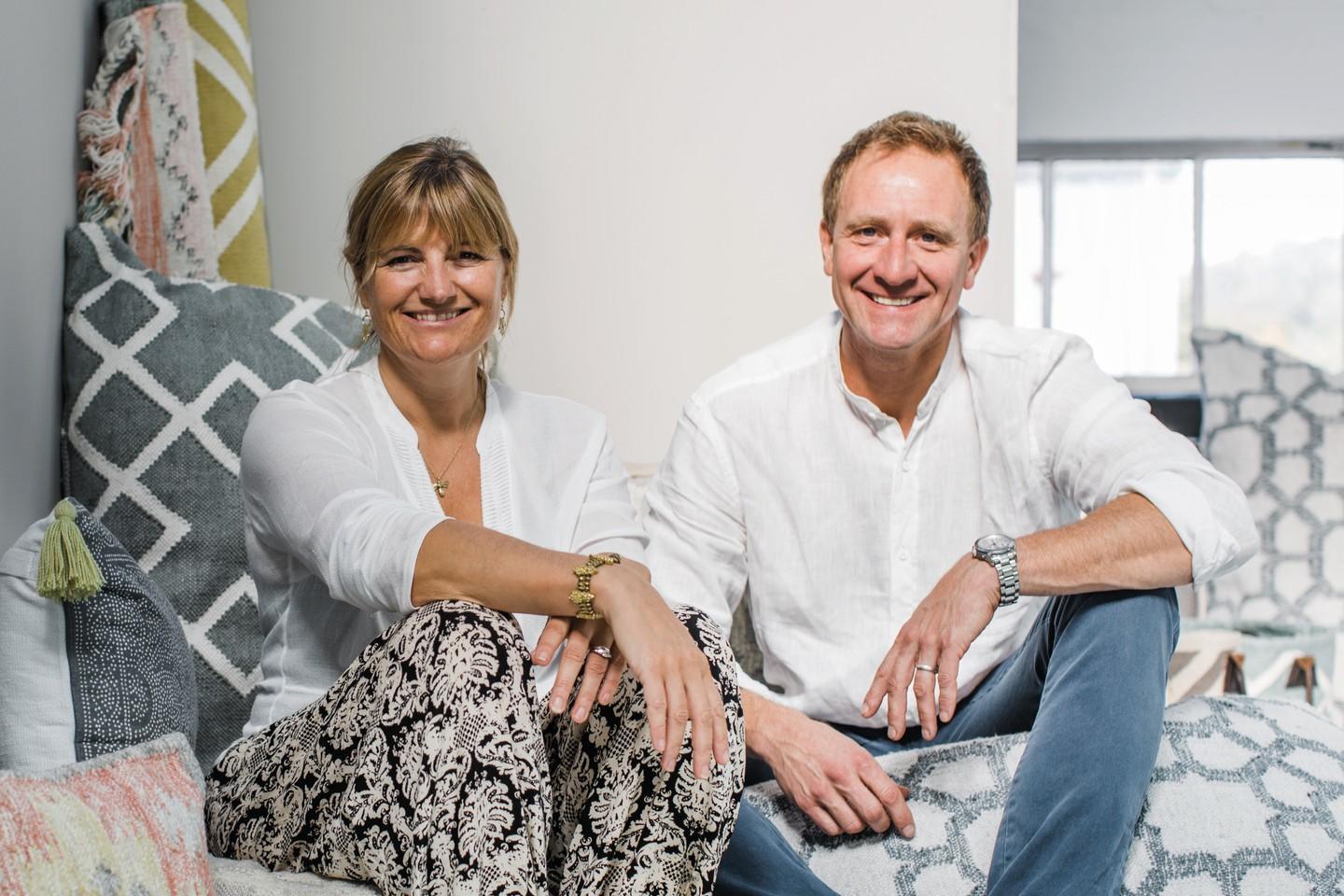
YOUR ECO-SHOPPING CHECKLIST. JUST ASK YOURSELF…
* Do I really need this item?
* Could I buy it second- hand/vintage/antique?
* Or even rent it?
* Is it well made? How long will it last?
* Will it stand up to cleaning?
* Is the manufacturer committed to sustainability?
* Are materials sourced responsibly?
* Does it make use of waste materials?
* Is it sustainably made?
* If buying from a shop, are they committed to sustainability?
* Is maximum energy conserved in use?
* Is packaging sustainable?
* Is delivery sustainable?
* Can the item be repaired if necessary?
* Can it be reused, refurbished or recycled, and how?
* How will I get rid of what it replaces?
Shopping, sadly, is not very good for the planet. The combined greenhouse gas emissions of British retailers are 80 per cent higher than road traffic. Nevertheless, 70 leading brands, galvanised by the British Retail Consortium, have signed up to a Climate Action Roadmap promising net zero carbon by 2040. They’re doing it in three chunks, aiming to decarbonise their stores by 2030, their deliveries by 2035 and their products by 2040.
We all need – well, let’s face it, love – to shop, and obviously it’s an essential activity for Weston Homes first-time buyers, But it doesn’t have to be a guilty pleasure. Several recent surveys have shown that consumers now have “sustainable” near the top of their buying priorities, while many market-savvy retailers have responded, doing their bit for sales and the environment at the same time.
Seeking to establish their eco-cred, brands may label products “made from recycled materials,” “fully recyclable,” or even just (rather weakly) “responsible”. But for a proper eco-audit, check out a retailer’s full story, probably hidden behind a small “sustainability” tag at the bottom of its website.
For starters, here are five outfits – two large and three small – that are showing the way.
Notwithstanding decades of disposable flat packs, today the Swedish giant leads in sustainability practice. Sceptical? Click to read its latest report
Ikea aspires to be “100 per cent circular” by 2030. This means its products will generate minimum waste and be easy to reuse, refurbish, repurpose or recycle. Ideally, circular products are themselves made from waste, and Ikea has already recycled wood, plastics, papers, metals and textiles into more than 30 quality materials.
Check out Ikea’s Circular Hubs These sell items that have been on display or are discontinued, plus “pre-loved” (aka second-hand) pieces from the brand’s pioneering Buy Back service. Or you can repair what you’ve got already with an abundance of spare parts available in store and online.
John Lewis has been meeting sustainability head-on. The drawback is that it does not design and make all of the goods it sells. Nevertheless, John Lewis has an impressive Ethics and Sustainability Strategy (click to read the full 2020/21 report).
The retail giant is committed to net zero carbon by 2035 – bringing forward the date by 15 years from a previous pledge. It promises own-brand products will be “made to last” from sustainable or recycled sources, while in-house designers are being trained to reduce waste, water and energy use. There’ll be more home collection services for bulky items. Innovative services for buying second-hand (with Vinteriors) and renting (with Fat Llama) will be expanded.
Travelling in Asia in 2008, Tasha and Barney Green saw a rope made from unravelled plastic bottles. How could they, too, make something useful, indeed beautiful, from the billions of plastic bottles littering lands and oceans?
It took seven years to perfect the soft, open, colourful fibre now hand-loomed into Weaver Green’s popular rugs, cushions, throws, baskets and totes. Yes, these are still plastic – but that makes them machine washable, moth-proof, easy to clean, mould-resistant, UV-stable and hard-wearing. The brand has recycled around 160 million bottles to date. Rugs and throws from £45; cushions from £36.
“The better the quality, the longer it lasts,” promises husband-and-wife team Leigh Harmer and Abi Boura, selling high-spec sofas since 2008. Now journalist and influencer Kate Watson-Smyth has designed for them “the most beautiful eco-sofa ever”. This has an FSC-certified frame (guaranteed for life) which is filled with recycled chip foam and coconut fibre dipped in natural latex. Covers are removable and interchangeable. For winter (and a UK first), there’s a unique recycled velvet made entirely from plastic bottles, woven by solar power and officially certified safe and sustainable. For summer, consider a chemical-free recycled cotton cover that’s made from 80 per cent fashion remnants, cutting waste, water and carbon emissions. Prices start at £2,498.
Friends Nick Torday and Marcus Hill set up Bower two years ago “to attack plastic waste”. They deliver sustainable laundry, homecare and beauty products as refills for reusable dispensers. Then, using the envelope supplied, you post the packaging back to Bower, where they guarantee it will be responsibly recycled – unlike the 90 per cent of household plastic waste which is put out for recycling, but nevertheless is exported, sent to landfill or incinerated.
“Our sustainable products do the job as well as non-sustainable alternatives and are rigorously tested,” says Bower Collective. “They are naturally derived, ethically sourced, UK-made and non-toxic.”
The products are inevitably more expensive than conventional supermarket brands. For example, a litre of Bower washing-up liquid costs from £3.59, flagged as a best buy for natural products by The Independent newspaper. Plus, there’s the £9.50 initial cost of the dispenser. Fairy Liquid sold by Sainsbury’s for £1 per 433ml, works out at £2.31 a litre.